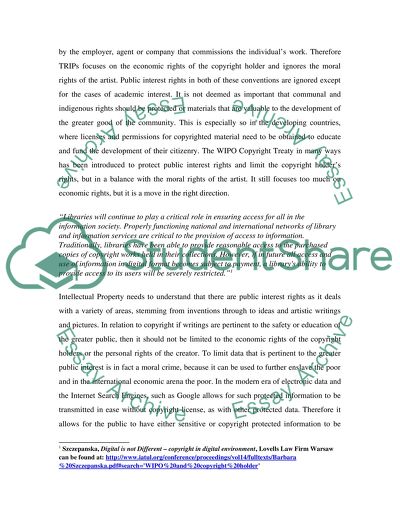Cite this document
(“WIPO, Berne, TRIPS, Copyright Law and their Implications for Google Essay”, n.d.)
WIPO, Berne, TRIPS, Copyright Law and their Implications for Google Essay. Retrieved from https://studentshare.org/miscellaneous/1512532-wipo-berne-trips-copyright-law-and-their-implications-for-google
WIPO, Berne, TRIPS, Copyright Law and their Implications for Google Essay. Retrieved from https://studentshare.org/miscellaneous/1512532-wipo-berne-trips-copyright-law-and-their-implications-for-google
(WIPO, Berne, TRIPS, Copyright Law and Their Implications for Google Essay)
WIPO, Berne, TRIPS, Copyright Law and Their Implications for Google Essay. https://studentshare.org/miscellaneous/1512532-wipo-berne-trips-copyright-law-and-their-implications-for-google.
WIPO, Berne, TRIPS, Copyright Law and Their Implications for Google Essay. https://studentshare.org/miscellaneous/1512532-wipo-berne-trips-copyright-law-and-their-implications-for-google.
“WIPO, Berne, TRIPS, Copyright Law and Their Implications for Google Essay”, n.d. https://studentshare.org/miscellaneous/1512532-wipo-berne-trips-copyright-law-and-their-implications-for-google.


